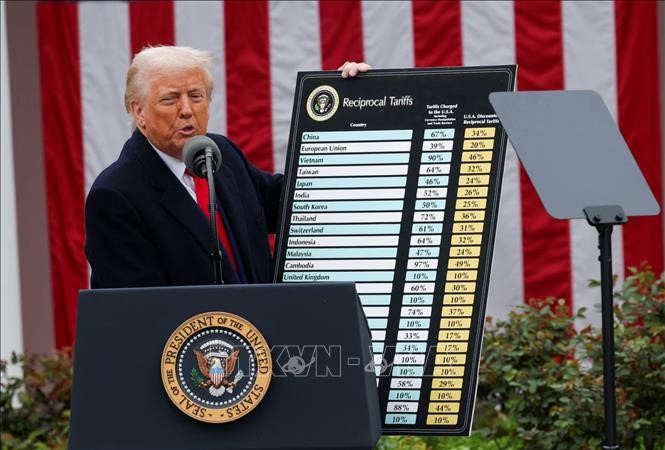
DONALD TRUMP AND THE TAX REVOLUTION OF 2025
In April 2025, the United States officially announced the largest series of tax reforms in decades. With the goal of strengthening domestic production and increasing the competitiveness of the US economy, President Donald Trump proposed a policy of cutting corporate income tax from 21% to 15%, while applying a 10% import tax on most goods from countries around the world – except Canada and Mexico.
These are bold steps with the expectation of encouraging US businesses to return to domestic investment, create more jobs and strengthen domestic supply chains. In fact, in just the first few months of the year, more than 380 billion USD in profits from large corporations have returned to the US, creating a positive investment effect, leading to growth momentum for the labor and financial markets.
However, this policy also poses many challenges. The imposition of additional import taxes of up to 49% on more than 60 countries, including Vietnam (46%), Cambodia (49%), has caused many concerns in the international business community. In addition, the US also imposed a 25% tax on imported cars – including from close partners – raising concerns about supply chain disruptions and increased trade tensions.
For Vietnam, the new US tax policy directly impacts key export sectors such as garments, footwear, and electronics, which are heavily dependent on the US market. In the context of global economic fluctuations, this high tax rate could cause export revenue to decline, affecting employment and growth rates of many industries. In addition, the US’s reduction of corporate tax to a record low has weakened the tax advantages of many countries in the region, including Vietnam (currently at 20%). According to the World Bank’s forecast, Vietnam could face the risk of losing 5-8 billion USD in direct investment capital each year, if there are no timely adjustments in investment attraction policies.
In that context, many experts believe that developing economies need to be more proactive in diversifying export markets, increasing added value in products, and focusing on building internal strength through infrastructure, institutional reform, and human resource quality. The new US tax policy is not just a domestic economic story, but a sign that a global trade order is gradually being reshaped. Vietnam and other countries need to closely monitor, assess the actual impact, and have flexible strategies to adapt – not only to overcome immediate difficulties, but also to thrive in the new context.


